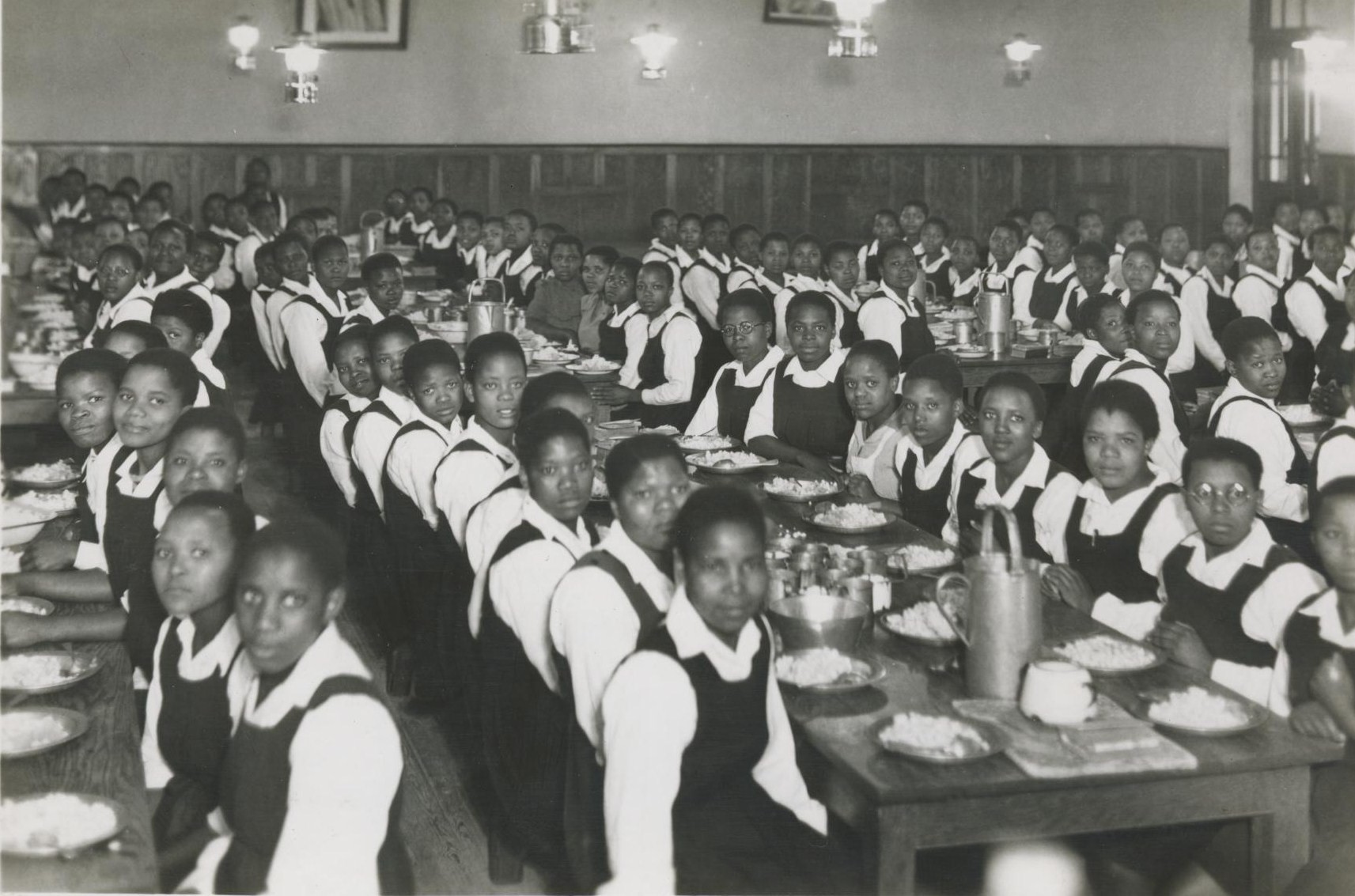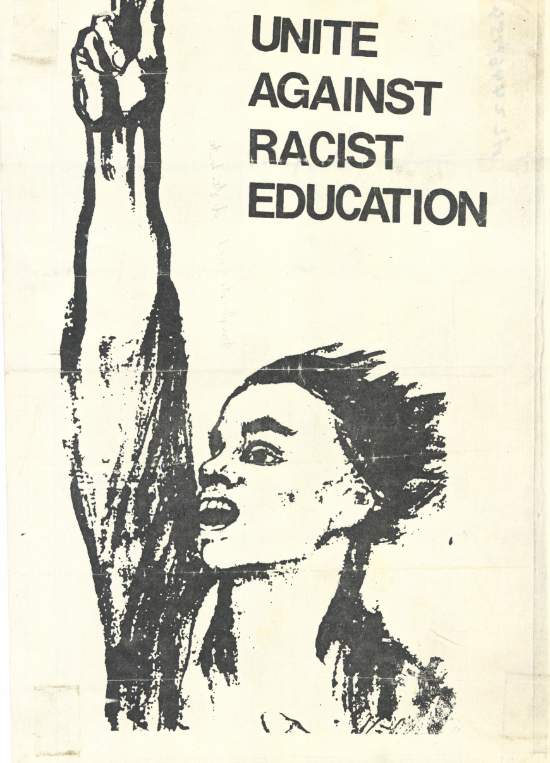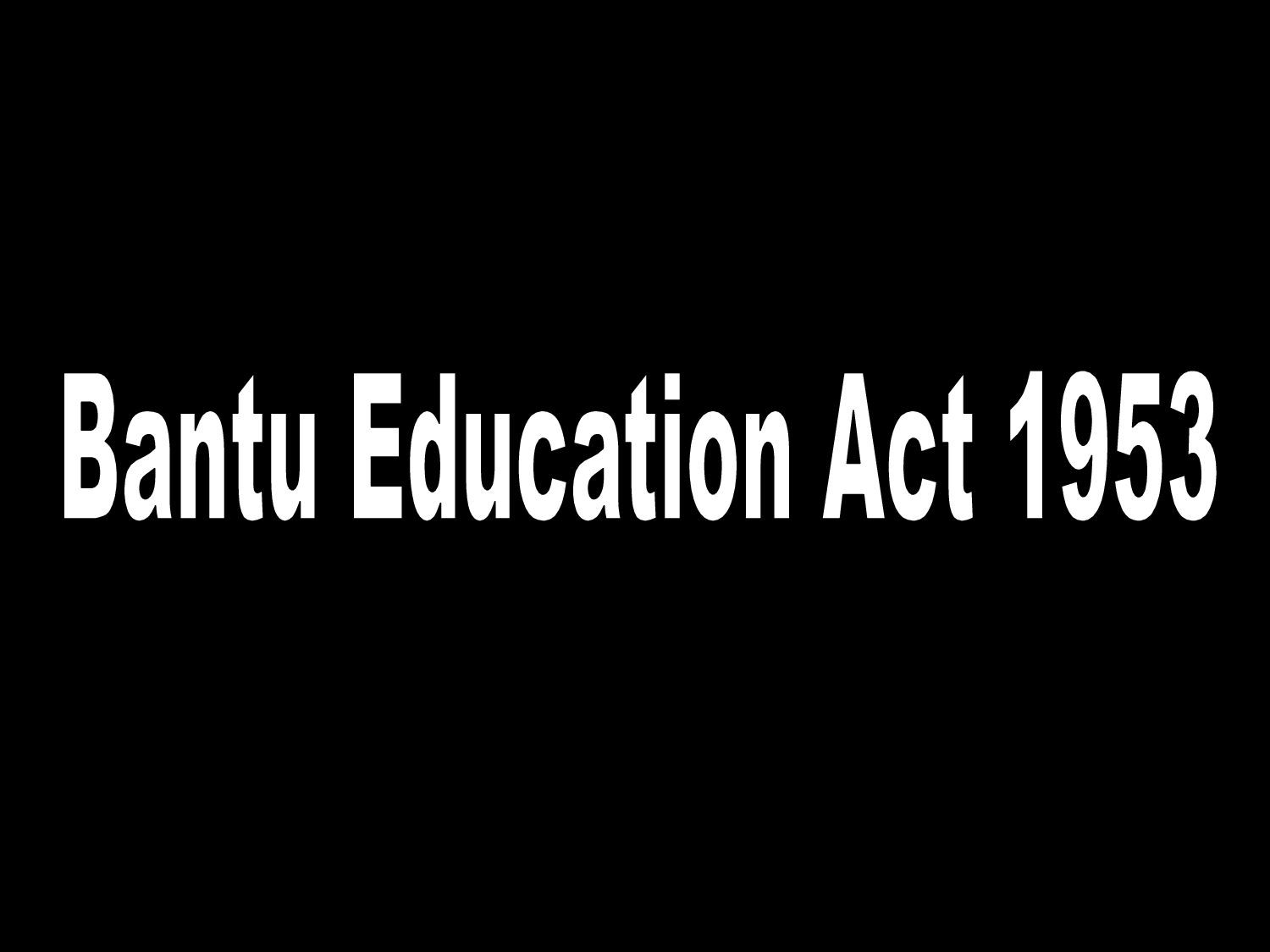Bantu Education Act, 1953
The Bantu Education Act, Act no. 47/1953 ( German: Bantu Education Act ) was a law that was passed by the Parliament of South Africa on 5 October 1953. The preparations for this law fell under the responsibility of Hendrik Verwoerd, the then Minister of Native Affairs (Minister of Native Affairs ) and later prime minister. With Bantu ( as a synonym for Natives ) in the sense of the law to all citizens of South Africa were meant as a "member of any aboriginal race or each tribe in Africa ( " ... a member of any aboriginal race or tribe of Africa; ... ) were considered. The Act created the foundations to introduce to them in the context of a policy of apartheid " Bantu education ", which was qualitatively set below the normal education.
Prehistory
On January 19, 1949, the South African government appointed a commission to indigenous education (Commission on Native Education), which was named after its chairman and anthropologists, Werner Willi Max panis, panis shortly Commission. She worked on a redesign of education for the black population, which at this time was largely the responsibility of Christian missionary societies. The Commission's work ended with its report ( Report of the Commission on Native Education, also panis Report) in 1951 and recommended the state control and takeover of the mission school system, which strongly influenced by Anglican and Roman Catholic partner institutions since the 19th century essentially had. The results of active 1949-1951 panis Commission provided the conceptual basis for the Bantu Education Act.
Purpose and Objectives
The Bantu Education Act belongs to a group of legislation in South Africa, which served for the legalization of apartheid concept. It was thus generally aims to put the non-white population groups, particularly black South Africans in a specific legal, social and cultural Indoktrinationslage and consequently forcing them into a distanced from the white upper class to isolated position. The officially declared purpose of this Act was the transfer of the management and control of the natives education of any type or level of all provincial administrations, and all other things related to the responsibility of the Union Government of South Africa.
The scope of the Act extend to any school, class, any college or any institution for the education of " Bantu children and people " and to the instruction and training of individuals who want to take the teaching profession, as well as existing for their continuing supply forms (paragraph 14).
In paragraph 15, paragraph 1 of the Bantu Education Act wide powers are listed, such as the Ministry will undertake the administrative reorganization of the educational system for the " Bantu population." These include regulatory issues, such as in the sequence to be adopted rules on rights, duties and remuneration. Explicitly, a disciplinary system for teachers as well as the supervision and control by the competent authority on training and instruction courses are called.
To further implement the goals are not well defined unspecified controlled substance or somehow limited possibilities for action were expressly authorized, permitted the differentiated decisions for teachers, groups, classes, or "teacher of certain races ", or schools and regions. This regulation pursuant to paragraph 15, paragraph 2 was the responsible ministry the opportunity to meet arbitrary decisions open.
Flanking the massive Ausgestaltungs and influencing possibilities of the Ministry is insured in paragraph 12 that " in terms of the principle of active participation of the Bantu population in the control and management of the State Bantu schools, regional, local and school bodies will be established. " For this set to the granting of rights, duties, functions and privileges of self-government organs and of undefined Bantu authorities in view.
Were the basis for this dual structures have been created already in 1951 with the Bantu Authorities Act. The thus established three-tier management system for the reserves that later Homelands, saw possibilities for co-responsibility before the construction and maintenance of educational institutions. These tasks could be transferred by individual acts on their regional authorities. In the settlement areas of the black population that had not yet entered into autonomous homelands, their own regional authority was passed through a "white" administrative level.
With the entry into force of the Bantu Education Act is directed to the South African Department of Native Affairs the powers to make expropriate by him as required prestigious country for the purpose of restructuring the educational structures.
Verwoerd quote
From the Minister Hendrik Verwoerd following statement is preserved within these items:
"There is no place for [the Bantu ] in the European community above the level of Certain forms of labor ... What is the use of teaching the Bantu child mathematics When it can not use it in practice? That is quite absurd. Education must train people in accor dance With Their opportunities in life, accor ding to the sphere in Which They Live. "
Effects
In order incipient situation of the country under the indigenous black population had the erection state-run schools, the result is that the operated in large numbers by missionary societies and other religious institutions education institutions ( 5000 ) had to be transferred to the South African state. This is also pursued the goal to eliminate the independent effects of the apartheid policy of liberal and English -influenced schools of thought on the young generation of the black population. The intended effects were a low value and poor education, which led to a desired structural discrimination.
In 1969, the government expenditure on education for a black child were compared to a white child in the ratio 17:70. On average, a teacher taught at a " Bantu " school classes with a strength of 51 students. Part of the teaching staff did not have sufficient training. The long-term consequences of those policies have led to continued mass unemployment and a widespread lack of education. The latter is hardly compensate. Accordingly, the annual additions to the universities in the country for many vintages of white students were characterized. The denied adequate education produced in some metropolitan areas among the young generation long -simmering political unrest (see Soweto uprising ). A reintegration into by interrupted schooling and obtaining a financial statement proved in many cases impossible and created psychological and social sequelae.
With this law, which originates from the 1945 Act to finance the education of indigenous people ( Native Education Finance Act, Act no. 29/1945 ) has been overridden.










